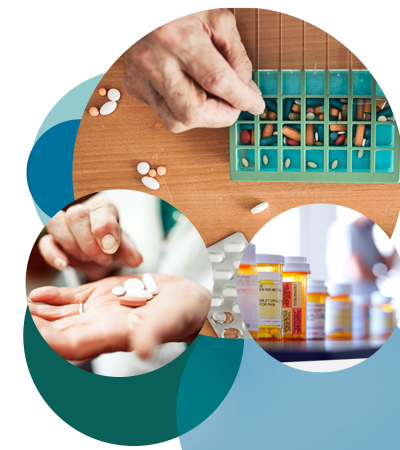
Health Tips
Children's Health
Make Sure Your Child Has Healthcare
Choose Your Child’s Providers
Regular Well Visits (or Check-ups)
Vaccines
Oral Health
Get Ready for Your Child’s First Dental Visit
Fever Tips
Health and Safety
Resources for Parents and Families
Exercise
Health Conditions
Addiction and Recovery
Asthma
Breast Cancer
LGBTQIA+ Health
What is Breast Cancer?
Detecting Breast Cancer
Treating Breast Cancer
Preventing Breast Cancer
Coping with Cancer
Cancer Screening Program for CareAdvantage Members
Diabetes
Symptoms of Diabetes
Types of Diabetes
Tips for Staying Healthy
Know Your Diabetes ABCs
Diabetes Control Checklist
More Diabetes Resources
Diabetes Prevention Program
Heart Disease & Stroke
HIV / AIDS
Understanding Sexual Orientation and Gender Identity (SOGI)
The Importance of Primary Care for LGBTQIA+ People
LGBTQIA+ Mental Health and Safety
Gender-Affirming Care
Resources for Families of the LGBTQIA+ Community
Managing Your Medicines
Take Your Medicines as Prescribed
Tips for Taking Medicines as Prescribed
Questions to Ask About Your Medicines
Mental Health
Mental Health Services
Get Mental Health Care
Preparing for Your First Therapy Session
Self-Care Tips
Depression
Maternal Mental Health
Stress Management
Complementary Care
Mental Health Resources
Nutrition
Older Adult Health
Pain Management
Types of Physical Pain
Problems That Pain Can Cause
Make a Pain Management Plan
Risks of Long-Term Opioid Use
Non-Opioid Pain Management
People with Disabilities
Pregnancy
HPSM's Baby + Me Program
Breastfeeding
Nutrition & Exercise
Maternal Mental Health
Doula Services
Resources for Parents and Families
Pregnancy & COVID-19
Well Visits
Your First Health Visit
When to Visit Your PCP
Preventive Health Screenings
Get the Flu Shot Every Year
Self-Care Tips to Help You Stay Healthy
Get the Cancer Screenings You Need
Be Healthy – Get the Flu Shot!
Get the Flu Vaccine
More Ways to Avoid Getting the Flu
What to Do If You Have the Flu
Who is at High Risk?
Differences Between the Flu and COVID-19
Helpful Flu Resources
Quit Smoking
The Dangers of Smoking
The Benefits of Quitting Smoking
What to Expect When Quitting Smoking
Build Your Own Quit Plan
Resources to Help You Quit Smoking
Self-Management Tools
Sexual and Reproductive Health
Sexual Communication, Consent and Respect
Sexually Transmitted Infections – Prevention and Treatment
Birth Control (Contraception)
Abortion
Talking With Your Health Care Provider About Sexual Health
Know Your Sexual Health Rights As a Minor
Teen Health
Weight Management
Health Information Library
Managing Your Medicines
It is vital that you take medicines the way your doctor or pharmacist tells you to. Taking the right amount at the right times will help you stay healthy and safe. Taking your medicines the wrong way can put your health and safety in danger. It can even put your life at risk. About 125,000 people die every year in the U.S. from taking their medicines incorrectly, and many more are hospitalized.
This guide:
- Explains the importance of good medicine management
- Provides practical tips to help you take your medicines correctly
- Includes questions to ask your doctor or pharmacist about how to take your medicines safely